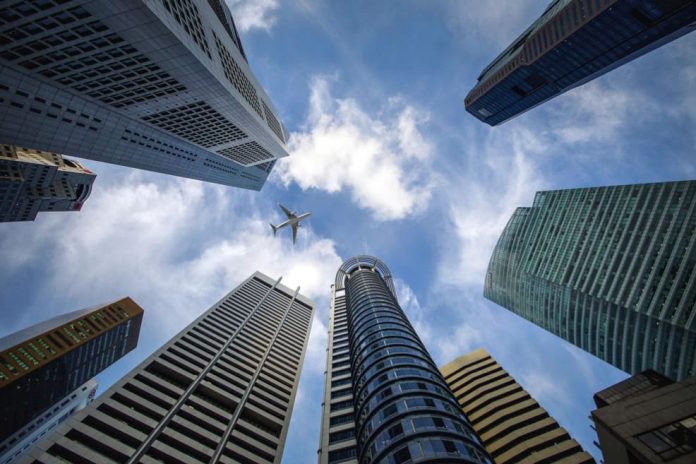The dangers of smoking have been well documented for many decades. This information clearly did not deter the tobacco giant Philip Morris from suing the government of Uruguay over an attempt to curb the practice.
Using the World Bank’s dispute settlement mechanism as its arsenal, in 2010 Philip Morris sued Uruguay for over USD 25 million in damages after the country adopted a number of anti-tobacco regulations.
According to the World Health Organisation, Philip Morris’s actions represented a clear effort by the tobacco industry to intimidate Uruguay – a country whose gross domestic product is just half the size of the company’s USD 66 billion in annual sales.
Fortunately for Uruguay, the tribunal dismissed Philip Morris’ demands and, in 2016, ordered the tobacco company to pay Uruguay USD 7 million and its associated costs.
In the David-Goliath battle between Uruguay and Philip Morris, the South American state walked away the victor. But few others in a similar position have been so fortunate.
From Mexico and Canada to Indonesia and Peru, countries worldwide have become caught up in a dramatic rise in disputes between states and foreign investors. Since 2000, hundreds of foreign investors have sued more than half of the world’s countries over claims that various government actions have threatened to undermine profits.
The idea of creating a forum to settle these disputes was first taken up by the World Bank in the 1960s, the belief being that such a system would help developing economies attract foreign capital. Recourse to international, impartial tribunals was seen to protect foreign investors from expropriation and discrimination in countries where the rule of law is weaker. However, the implementation of this system has not been straight forward.
All too quickly, governments discovered the true price of inspiring investor confidence, as corporations brought opportunistic cases to recover money invested, but also for alleged lost profits and “expected future profits”.
As a consequence, governments have become lumbered with exorbitant arbitral awards, with the numbers involved becoming so huge that vulture funds started to take notice. Indeed, claims by investors against states are now seen as assets that can be bought, traded or used as leverage to secure multimillion-dollar loans from aggressive hedge funds.
Grave dissatisfaction with the dispute resolution mechanism has also risen around the fact that the system privileges foreign investors to the detriment of the national, or global, good. And as a result, opposition is now growing among international lawmakers.
For instance, in 2018, more than 300 Republican and Democrat state legislators signed a letter urging the dispute system between investors and states be eliminated from the North American Free Trade Agreement (NAFTA), after corporations pocketed USD 392 million from tax payers following legal challenges over environmental and public health policies.
Likewise, in 2020, EU lawmakers raised concerns while renegotiating the Energy Charter Treaty (ECT) that the dispute systems could impede climate action if it meant polluting industries could sue governments over environmental policies.
With concerns mounting, a number of countries such as Bolivia, Ecuador, Venezuela, and South Africa have now tried to extricate themselves from the dispute system. And most significantly, in 2018, the Court of Justice of the European Union concluded in Achmea B.V. v Slovakia that EU investors could not have recourse to arbitration under bilateral investment treaties between two EU Member states.
In Africa, Nigeria is currently being pursued by a British Virgin Islands investor, Process and Industrial Developments Limited (P&ID), over a collapsed gas contract that was procured through fraud and corruption.
Seeking damages over an alleged breach of contract, P&ID sued the Federal Republic of Nigeria (FRN) in a London arbitral court and was awarded damages to the tune of USD 6.6 billion, which has risen to over USD 10 billion with interest. The award is equivalent to almost four times the size of the country’s security budget and ten times the country’s annual health budget.
The FRN is currently fighting to overturn the arbitral award that is alleged to have been fraudulently secured by P&ID, a shell company backed by the vulture fund VR Capital and an opaque Cayman Islands-based entity, Lismore Capital. Fortunately for Nigeria, the country has finally been given the chance to set aside the award, with a fraud trial due to take place in London in 2023, where the FRN’s substantive case will be heard.
As the trial approaches, the validity of disputes between international foreign investors and states is increasingly being called into question, with the clamour for reform growing louder by the day. As Harry Broadman, chair of emerging markets practice at Berkeley Research Group LLC, writes, it is clear the current legal system that allows for corporations to sue governments is, “fractured, dysfunctional and stuck in a time warp”. Perhaps it is time to rethink our international legal system and put national good above corporate greed.



































